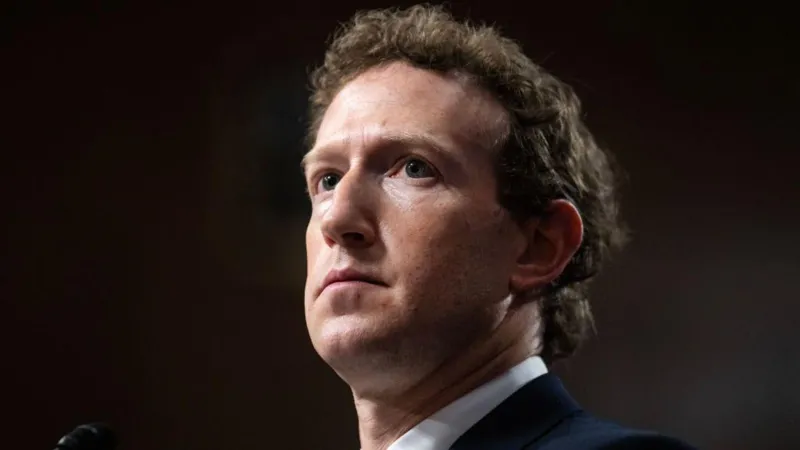Zuckerberg to Appear in Court Amid Growing Scrutiny of Tech Giants
Mark Zuckerberg has been ordered to testify in a landmark legal case. This case could redefine how social media companies are held responsible for the mental health of young users. The Los Angeles County Superior Court rejected arguments from Meta Platforms. They argued that his in-person appearance was unnecessary. This signals the court’s intent to question corporate leaders directly. Alongside Zuckerberg, the court also ordered Snap CEO Evan Spiegel and Instagram head Adam Mosseri to appear. This highlights the scope of the trial, which targets the design and operation of major social media platforms.
The lawsuit, one of the first of its kind to reach trial, consolidates hundreds of claims. These claims are brought by parents, schools, and local governments. They allege that social media companies knowingly made their apps addictive to children and teens. According to the Centers for Disease Control and Prevention (CDC), adolescent mental health challenges have risen dramatically over the past decade. Increased social media usage is cited as a contributing factor. Plaintiffs argue that features like constant notifications, algorithmic loops, and the “like” system exploit vulnerabilities in young users’ brains.
While the companies deny these claims, the court’s ruling adds symbolic weight to the proceedings. Legal analysts suggest this could establish new standards for executive accountability within the tech industry. These new standards would particularly concern product design and user safety.
The Case That Could Redefine Online Responsibility
The trial, expected to begin in January 2025, consolidates lawsuits originally filed in 2022. These lawsuits accuse Meta, Snap, TikTok, and YouTube of contributing to a mental health crisis among young users. The plaintiffs allege that these platforms failed to protect users. They also claim that platforms prioritized engagement metrics and advertising revenue over user well-being.
Legal experts at the American Bar Association note that this case could mark a turning point in digital company regulation in the U.S. If the court rules against Meta and other defendants, it could lead to sweeping changes. These changes may affect content moderation policies, app design, and even federal legislation around digital safety.
The companies have invoked Section 230 of the Communications Decency Act. This 1990s-era law shields online platforms from liability for user-generated content. However, the Los Angeles judge ruled that this immunity doesn’t protect them from claims related to product design and negligence. The court will now consider whether using manipulative design features constitutes corporate negligence.
This ruling could have global implications. Regulators in the European Union have already implemented stricter rules under the Digital Services Act. U.S. policymakers have indicated that similar frameworks may follow. This depends on the outcome of this case.
Social Media, Youth, and the Mental Health Debate
The growing concern about the psychological effects of social media on young people has placed companies like Meta and TikTok under intense scrutiny. Studies from the National Institutes of Health (NIH) suggest that excessive social media exposure can lead to anxiety, depression, and body image issues among adolescents. Critics argue that these effects are compounded by design features meant to keep users engaged and encourage comparison-based behavior.
Meta and Snap maintain they have introduced safeguards to protect younger users. Instagram launched new “teen accounts” with content filters, time restrictions, and enhanced parental controls. Snapchat has emphasized its focus on private communication rather than algorithmic feeds. Despite these efforts, advocacy groups and parents argue such measures are insufficient, describing them as reactive rather than preventive.
The trial’s outcome could force major platforms to overhaul their algorithms. It may require redesigning engagement systems and introducing more robust parental controls. Experts at the Pew Research Center emphasize that the results will likely influence not just corporate practices. It will also impact public perceptions of social media’s role in society.
Judge Carolyn Kuhl’s decision to compel Zuckerberg’s testimony underscores the legal system’s growing willingness to hold tech leaders personally accountable. “The testimony of a CEO is uniquely relevant,” she wrote. She emphasized that understanding executives’ knowledge and intent could be critical in determining negligence.
As the January trial approaches, both industry insiders and policymakers are watching closely. A ruling against Meta could trigger a wave of similar lawsuits nationwide. This could reshape how digital platforms operate and how they’re regulated in relation to youth protection and mental health.
This case represents not only a legal battle but also a cultural reckoning. It examines how technology shapes younger generations’ minds and futures, and whether those in power will finally be held to account.



